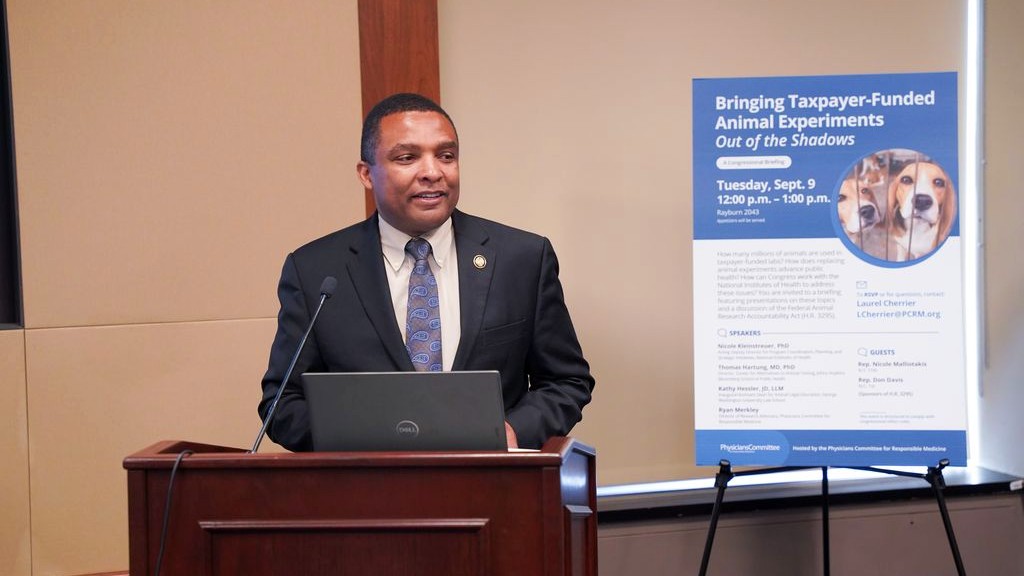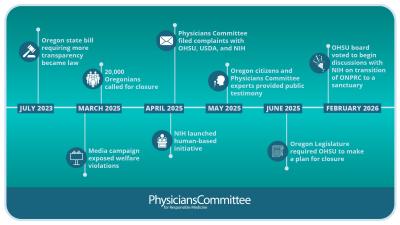Shining a Light on Animal Use in Laboratories: Physicians Committee Hosts Congressional Briefing on the Federal Animal Research Accountability Act (H.R. 3295)

How many animals are used in taxpayer-funded experiments every year? The truth is, no one knows. Estimates range from 10 million to 110 million, but the federal government doesn’t collect accurate numbers. Without data, we cannot measure whether the U.S. is making progress toward reducing and replacing animal experiments.
That's why the Physicians Committee hosted a congressional briefing on Capitol Hill on September 9 for the Federal Animal Research Accountability Act (H.R. 3295). The briefing featured Rep. Don Davis (D-N.C.); National Institutes of Health acting deputy director Nicole Kleinstreuer, PhD; George Washington Law assistant dean for animal legal education Kathy Hessler, JD, LLM; Johns Hopkins Center for Alternatives to Animal Testing director Thomas Hartung, MD, PhD; and Physicians Committee director of research advocacy Ryan Merkley, who together discussed how reducing animal experiments can improve public health outcomes, the need for greater transparency, and how Congress can collaborate with the NIH to address these issues.
The briefing highlighted the Federal Animal Research Accountability Act (H.R. 3295). Introduced in the U.S. House of Representatives in May by Reps. Nicole Malliotakis (R-N.Y.), Don Davis (D-N.C.), and Jennifer Kiggans (R-Va.), the bill would require the NIH to collect and publicly report accurate data on the number of animals used in NIH-funded research laboratories.
While tracking the number of animals used in research is currently being done at the U.S. Department of Agriculture (USDA), as well as in the United Kingdom, Canada, and the entire European Union, an estimated 95% of animals used in NIH-funded research are not being accurately counted or reported. Instead, the NIH produces a crude estimate once every four years, and this number can vary widely—from 10 million to 110 million. Moreover, this estimate is not publicly available and can only be obtained through a FOIA request. As the NIH begins shifting away from animal-based methods, the lack of reliable data makes it nearly impossible to track progress. The Federal Animal Research Accountability Act aims to address this by requiring all facilities receiving funds from the Public Health Service, including the NIH, to annually report the number of animals used each year by compiling a one-page form and uploading it to a public database, comparable to how the USDA operates.
Tracking animal use is essential for measuring progress as the NIH and the broader scientific community work to reduce and replace animal experiments with modern, human-based research methods. The Federal Animal Research Accountability Act would provide enhanced transparency by requiring accurate reporting and making the data publicly accessible online.
The new legislation is endorsed by more than 20 other organizations and companies, including the Johns Hopkins Toxicology Policy Program, the Animal Welfare Institute, the Government Accountability Project, the Institute for In Vitro Sciences, and the National Freedom of Information Coalition.







